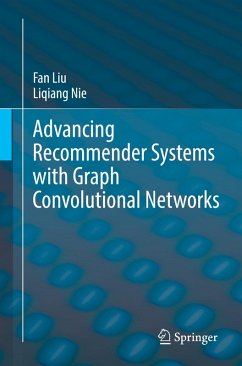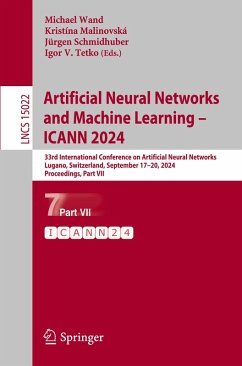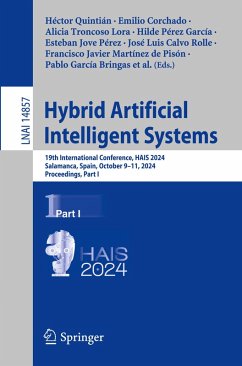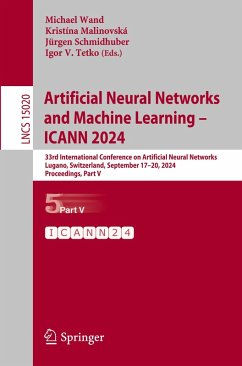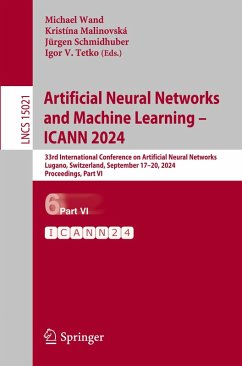
Stability Analysis of Neural Networks and Evolving Intelligent Systems

PAYBACK Punkte
68 °P sammeln!
This book explores the stability analysis of neural networks and evolving intelligent systems, focusing on their ability to adapt to changing environments. It differentiates between neural networks, which have a static structure and dynamic parameter learning, and evolving intelligent systems, where both structure and parameters are dynamic. A key concern addressed is ensuring the stability of these systems, as instability can lead to damage or accidents in online applications. Stability Analysis of Neural Networks and Evolving Intelligent Systems emphasizes that stable algorithms used in thes...
This book explores the stability analysis of neural networks and evolving intelligent systems, focusing on their ability to adapt to changing environments. It differentiates between neural networks, which have a static structure and dynamic parameter learning, and evolving intelligent systems, where both structure and parameters are dynamic. A key concern addressed is ensuring the stability of these systems, as instability can lead to damage or accidents in online applications. Stability Analysis of Neural Networks and Evolving Intelligent Systems emphasizes that stable algorithms used in these systems must be compact, effective, and stable.
The book is divided into two parts: the first five chapters cover stability analysis of neural networks, while the latter five chapters explore stability analysis of evolving intelligent systems. The Lyapunov method is the primary tool used for these analyses. Neural networks are applied to various modeling and prediction tasks, including warehouse load distribution, wind turbine behavior, crude oil blending, and beetle population dynamics. Evolving intelligent systems are applied to modeling brain and eye signals, nonlinear systems with dead-zone input, and the Box Jenkins furnace.
Each chapter introduces specific techniques and algorithms, such as a backpropagation algorithm with a time-varying rate for neural networks, analytic neural network models for wind turbines, and self-organizing fuzzy modified least square networks (SOFMLS) for evolving systems. The book also addresses challenges like incomplete data and big data learning, proposing hybrid methods and modified algorithms to improve performance and stability. The effectiveness of the proposed techniques is verified through simulations and comparisons with existing methods.
The book is divided into two parts: the first five chapters cover stability analysis of neural networks, while the latter five chapters explore stability analysis of evolving intelligent systems. The Lyapunov method is the primary tool used for these analyses. Neural networks are applied to various modeling and prediction tasks, including warehouse load distribution, wind turbine behavior, crude oil blending, and beetle population dynamics. Evolving intelligent systems are applied to modeling brain and eye signals, nonlinear systems with dead-zone input, and the Box Jenkins furnace.
Each chapter introduces specific techniques and algorithms, such as a backpropagation algorithm with a time-varying rate for neural networks, analytic neural network models for wind turbines, and self-organizing fuzzy modified least square networks (SOFMLS) for evolving systems. The book also addresses challenges like incomplete data and big data learning, proposing hybrid methods and modified algorithms to improve performance and stability. The effectiveness of the proposed techniques is verified through simulations and comparisons with existing methods.



